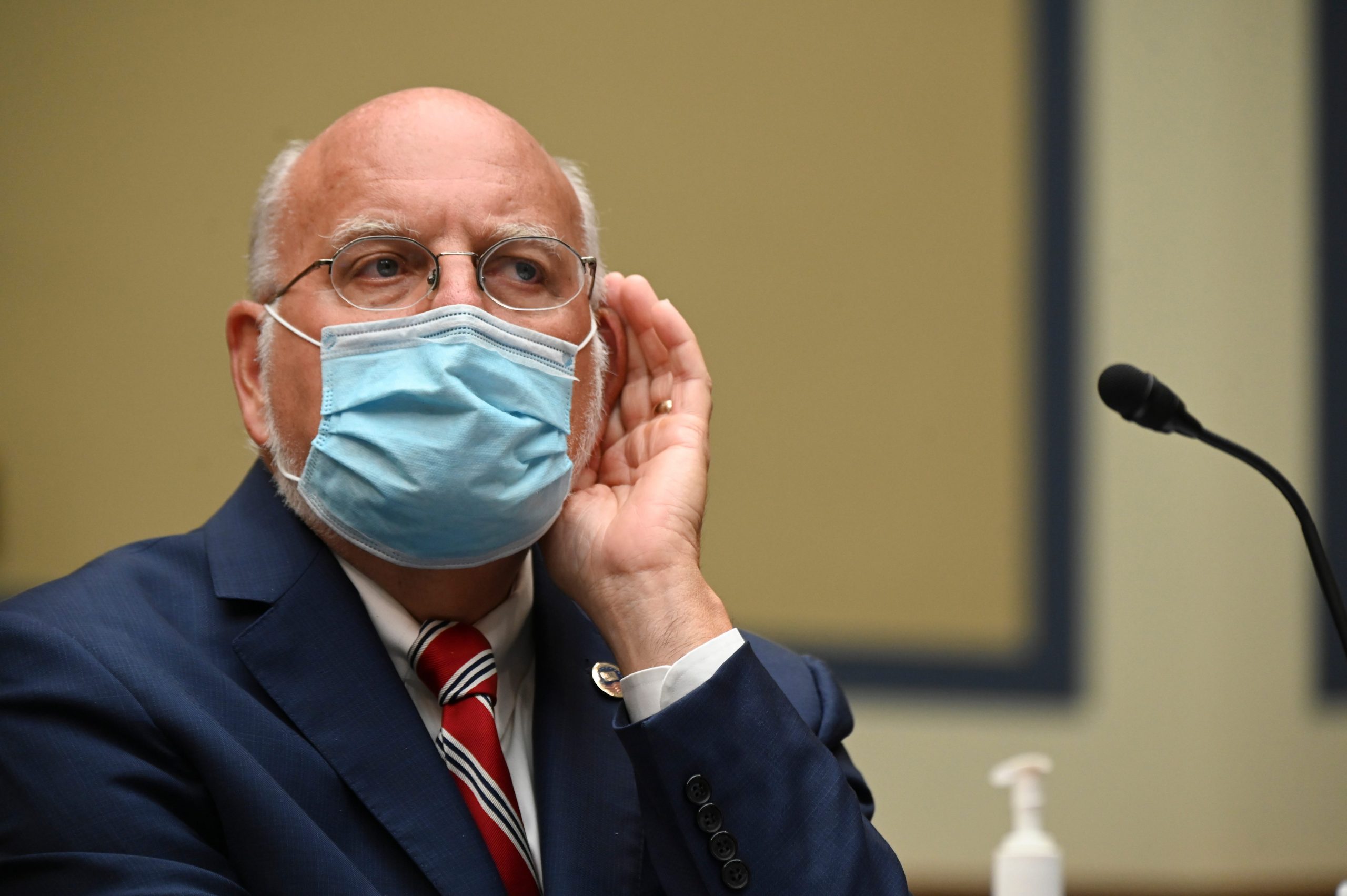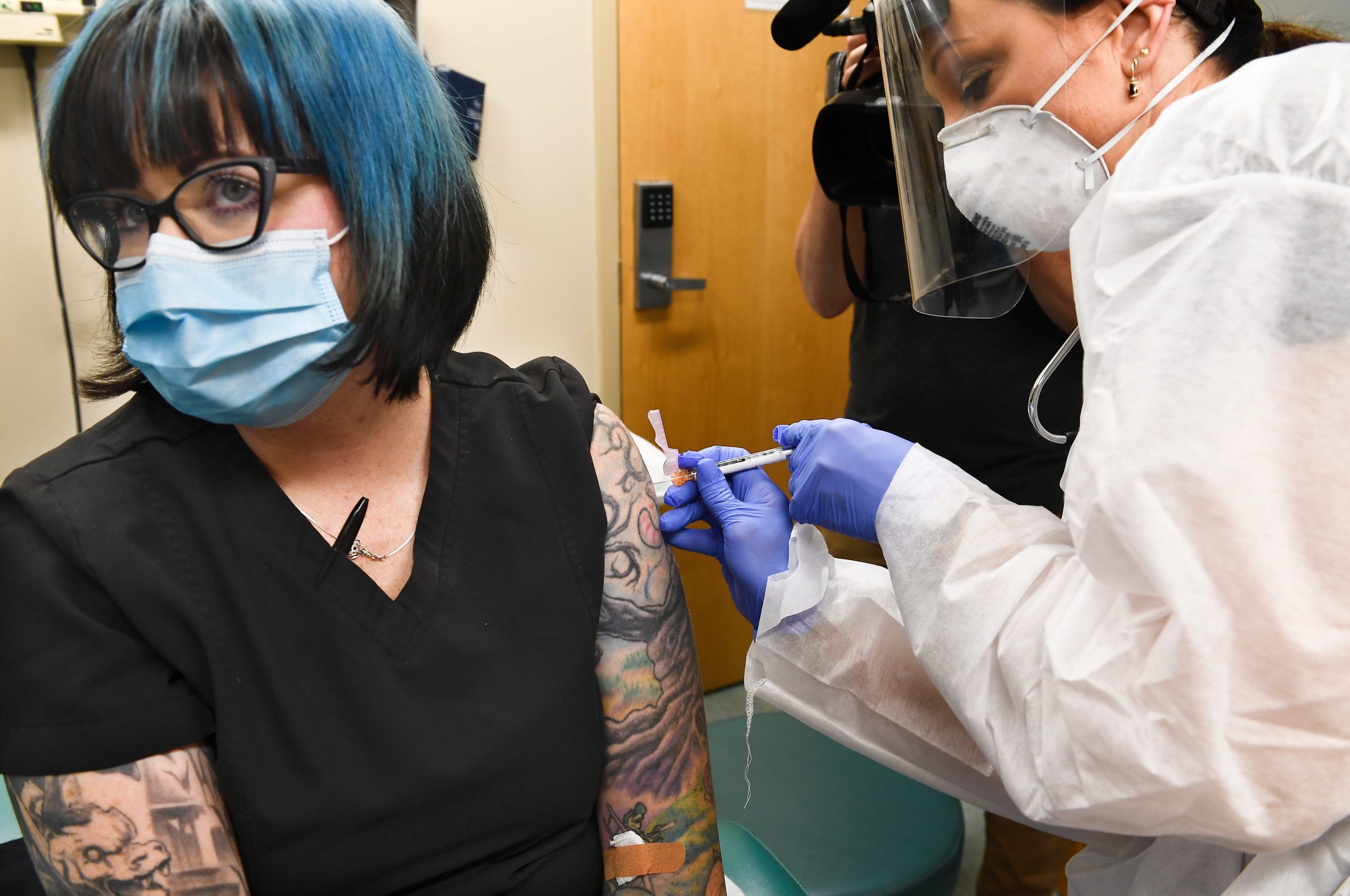
Erin Scott-Pool/Getty Images
- At a Senate subcommittee hearing on Wednesday, CDC Director Robert Redfield said most Americans won’t receive a coronavirus vaccine until “late second quarter, third quarter 2021.”
- Hours later, President Trump said Redfield was “confused.”
- “I think he made a mistake when he said that. It’s just incorrect information,” Trump said at a press conference.
- Most experts agree that a vaccine won’t be available before the election this fall.
- Visit Business Insider’s homepage for more stories.
Don’t hold your breath for a coronavirus vaccine this fall.
That’s the resounding refrain from US public-health officials, including Robert Redfield, director of the Centers for Disease Control and Prevention. At a Senate subcommittee hearing on Wednesday, Redfield said a vaccine won’t be widely available to the American public until the summer or early fall of 2021.
“There will be vaccine that will initially be available sometime between November and December, but very limited supply and will have to be prioritized,” Redfield said Wednesday. “If you’re asking me when is it going to be generally available to the American public so we can begin to take advantage of vaccine to get back to our regular life, I think we’re probably looking at late second quarter, third quarter 2021.”
But a mere hours after that hearing, President Donald Trump said Redfield was “confused” about the timeline.
“I think he made a mistake when he said that. It’s just incorrect information,” Trump said at a Wednesday evening press conference. “I called him and he didn’t tell me that. I think he got the message maybe confused, maybe it was stated incorrectly.”
Trump then reiterated his prior claim that a vaccine may become available as early as October or "a little bit after" — right around the time of the election on November 3.
"We're not looking to say, 'Gee, in six months we're going to start giving it to the general public,'" Trump said. "No, we want to go immediately."
He added, however, that "the safety has to be 100%."
At the same press conference, Trump's new coronavirus adviser, Scott Atlas, said the vaccine would be available to high-priority people "no later than January." He anticipated that there would be 700 million doses by end of the first quarter of 2021.
In a statement on Wednesday evening, a spokesperson for Redfield said the CDC director was referring to the time period in which all Americans would have completed their vaccinations, not the moment when vaccine doses would become available to all Americans.
Conflicting estimates of a vaccine timeline

AP Photo/Hans Pennink
Under the most optimistic vaccine timeline, leading drug companies could see promising results from their clinical trials this fall or by the end of the year. Pfizer and Moderna, in particular, could release results from their phase 3 trials in October. The AstraZeneca-Oxford phase 3 trial could also yield results by the end of 2020, even though that trial was paused briefly after a participant had an adverse reaction.
Never miss out on healthcare news. Click here to subscribe to Business Insider's daily newsletter on pharma, biotech, and healthcare.
Anthony Fauci, director of the National Institute of Allergy and Infectious Diseases, has said experts probably won't know whether a vaccine is safe and effective until the end of 2020.
But even once a vaccine is proven safe and effective, the US won't immunize everyone right away. Instead, priority will go to high-risk populations such as healthcare workers and people 70 years or older.
The US government is funding the research, development, and manufacturing of six vaccine candidates through a program called Operation Warp Speed. The chief adviser to that program, Moncef Slaoui, previously told Business Insider that the US might be able to immunize about 70 million or 80 million people by the second quarter of 2021.
But Paul Mango, the deputy chief of staff for policy at the Department of Health and Human Services, has put forward a speedier timeline.
During a Wednesday press call, Mango said the US was on track to "vaccinate every American before the end of first quarter 2021." He added that the Food and Drug Administration would likely grant emergency authorization for a coronavirus vaccine by the end of 2020.
That's not impossible, but many public-health experts say it's unlikely.
Regardless of when the first doses of a vaccine become available, public-health experts may continue to recommend face masks for the American public well into next year. At the Senate hearing on Wednesday, Redfield even said face masks may offer a better guarantee of individual protection from COVID-19 than an early vaccine. That's because the FDA has said it will authorize a vaccine if it's at least 50% more effective than a placebo at preventing or reducing the severity of the disease — so it wouldn't eliminate your risk of getting a coronavirus infection.
"If I don't get an immune response, the vaccine's not going to protect me," Redfield said. "This face mask will."
Rhea Mahbubani Kamal contributed reporting.
This story has been updated to include Trump's response and a statement from a Redfield spokesperson.
